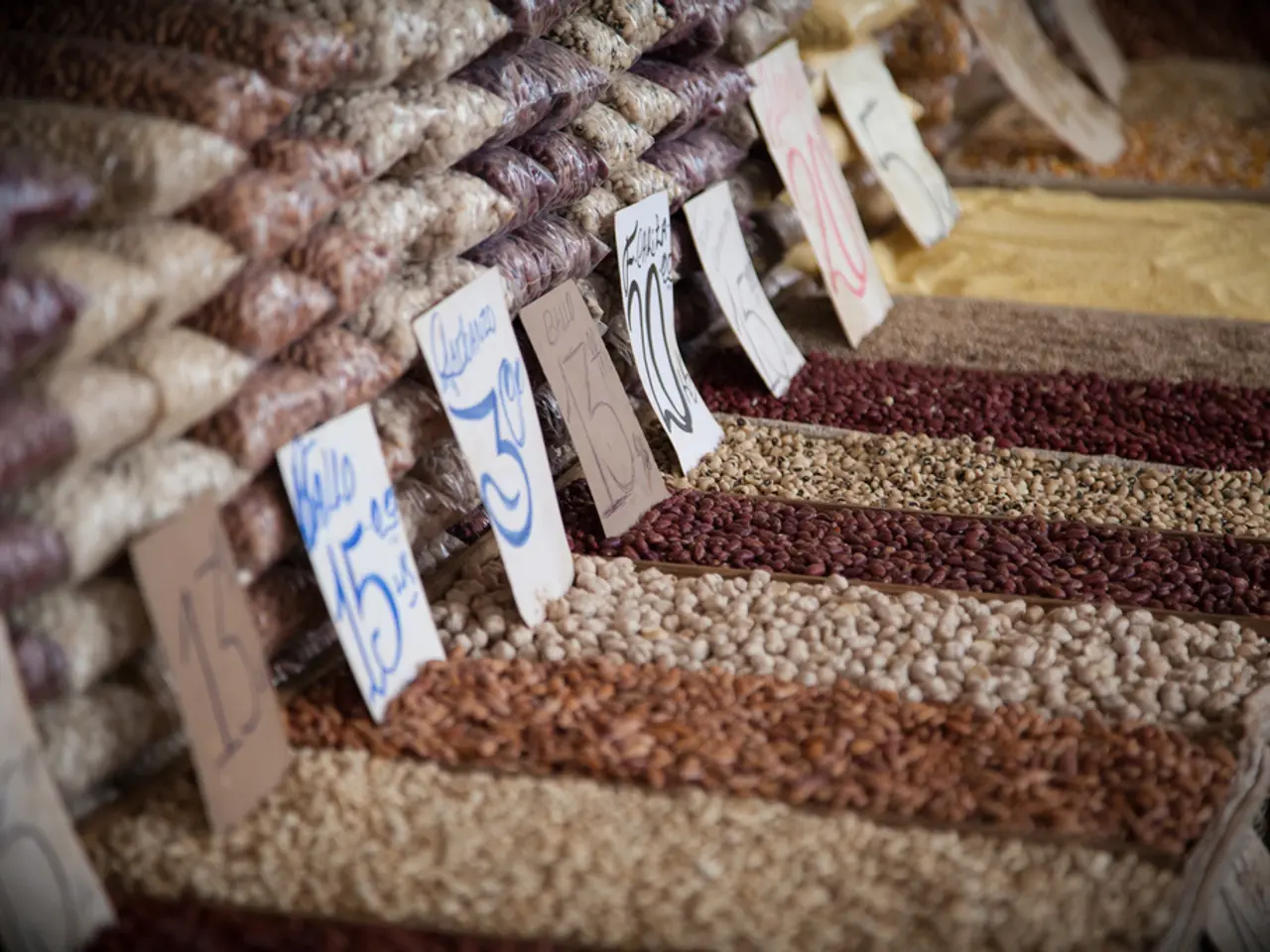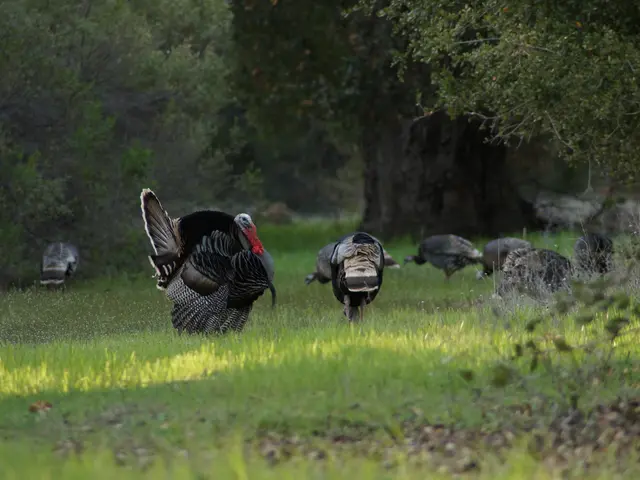Russia intends to seize additional Ukrainian grains during the ongoing agricultural predicament
In the midst of the ongoing conflict, Russia has been increasing its agricultural sector by exploiting the occupied territories of Ukraine, particularly in Luhansk. This is evident from the significant role that grain from the occupied oblasts of Ukraine has played in Russia's total harvest since 2023 and 2024, accounting for approximately 3%.
The Kremlin's strategy involves exerting control over agricultural companies in the occupied territories, blocking local farmers' access to their produce, and using the grain as a strategic resource. This control allows Russia to manage and export the grain, integrating it into its agricultural output.
Estimates suggest that during the full-scale invasion, Russia could have harvested and exported between 10 to 15 million tonnes of wheat from occupied Ukrainian territories. This is a substantial volume, comparable to the wheat harvest of a major EU agricultural country like Romania in 2022.
Specific estimates for 2023 and 2024 are not detailed, but it is known that around 2.5 million tons of new crop wheat were exported from areas like Donetsk, Luhansk, Zaporizhzhia, and Kherson to Russia. This has helped replenish Russia's grain reserves despite drought conditions.
The stolen grain is being sold to over 70 countries, including Egypt, Türkiye, and Iran, contributing to Russia's dominance in the global grain market. This not only boosts Russia's agricultural output but also financially supports its military activities and strategic alliances.
However, Russia's grain harvest is expected to be limited this year due to drought, sanctions, and limited access to machinery. Grain sales in June have already dropped by 34.5% in Russia.
Despite these challenges, the Kremlin continues to illegally seize grain from farmers at artificially low prices in the Russian-occupied part of Zaporizhzhia Oblast. The seized grain is then transported to ports in Rostov-on-Don and mixed with Russian grain, making it more difficult to trace and enabling Russia to bypass sanctions.
The Center for Countering Disinformation under Ukraine's National Security and Defence Council has reported on these findings, highlighting the ongoing seizure and export of grain from the occupied regions of Ukraine. This practice is not only used to meet the needs of the occupied regions but also for export, further straining relations between Russia and Ukraine, as well as international relations.
Since the beginning of the full-scale invasion, Russia has appropriated about 15 million tonnes of Ukrainian grain, a significant portion of Ukraine's agricultural output. The situation underscores the urgent need for international action to address this illegal exploitation and ensure the sovereignty of Ukraine's territories.
[1] Center for Countering Disinformation under Ukraine's National Security and Defence Council. (2023). Report on the illegal export of grain from occupied Ukrainian territories. Retrieved from https://www.ccd.gov.ua/en/news/report-on-the-illegal-export-of-grain-from-occupied-ukrainian-territories
[2] European Commission. (2023). Agriculture in the EU. Retrieved from https://ec.europa.eu/info/business-economy-euro/sectors/food-farming-fisheries-and-food-industry/agriculture-eu_en
[3] United Nations Food and Agriculture Organization. (2023). Ukraine: Agriculture in the Time of War. Retrieved from https://www.fao.org/ukraine/en/agriculture-in-the-time-of-war/
- The Kremlin's exploitation of Ukraine's agricultural sector, particularly in Luhansk and other occupied territories, has not only strained relations between Russia and Ukraine but also impacted global health and economy, as the stolen grain is contributing to Russia's dominance in the global grain market, providing financial support for military activities and strategic alliances.
- As the international community works to address the ongoing conflict, it is crucial to consider the broader implications of this exploitation on politics, general news, and health, as the seizure and export of grain from occupied Ukrainian territories undermines the sovereignty of Ukraine's territories and may have consequences for food security and global economy.








